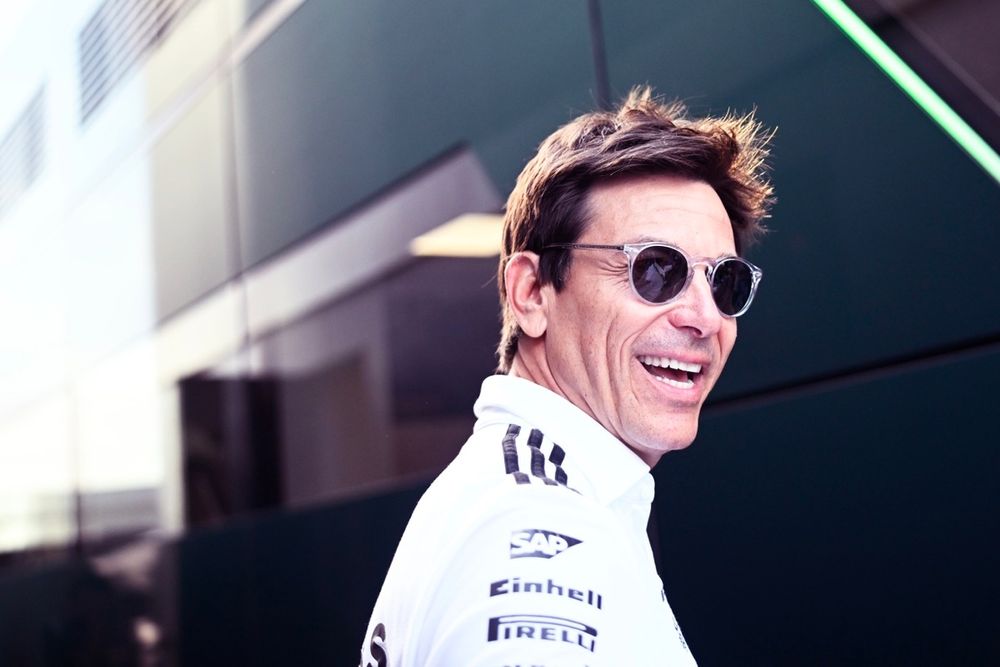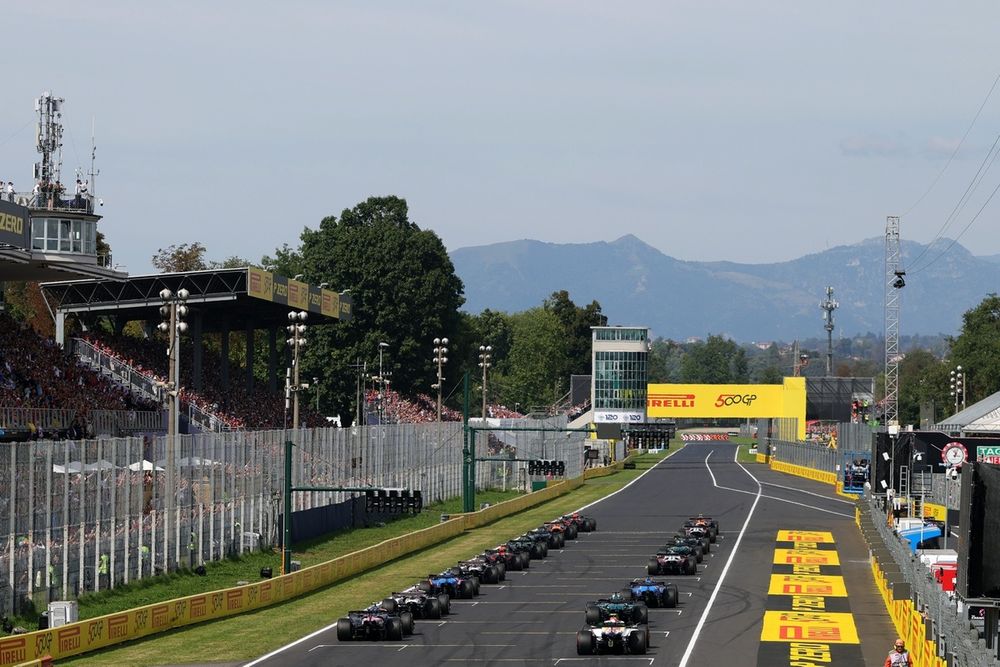Mercedes team boss Toto Wolff says Formula 1’s engine manufacturers are aligned in principle on a future move to V8 power units, but felt it didn’t make financial sense to fast-track them before 2031.
FIA president Mohammed Ben Sulayem is a driving force behind the introduction of simpler, cheaper and lighter engines for F1’s future power unit formula, and was keen to make the change as early as 2029, which would have meant just three seasons of using the hybrid engines introduced next year.
Initial discussions on the topic took place at a meeting with F1’s current and future OEMs in Bahrain, and Ben Sulayem called for another meeting in London this Thursday to further flesh out plans.
However, on the Saturday of the Italian Grand Prix weekend, the FIA president notified the power unit manufacturers involved that the meeting had been called off and postponed until a later date, having realised that there was no widespread support for his 2029 timeline.
Per the current FIA power unit governance agreement, the proposal would have needed the support from the FIA, commercial rights holder FOM and a large majority of manufacturers. But Audi and Honda are particularly against an early switch, having just invested hundreds of millions in the five-year 2026-2030 regulations that they specifically signed up for, featuring a much bigger hybrid component than the current rules.
Motorsport.com understands Mercedes and Ferrari were open to a compromise of switching to new engines ahead of the 2030 season – one year earlier than planned – but didn’t back another wholesale change after just three seasons, which would have meant ramping up investment in the future engine formula alongside the expensive 2026 power unit project.

Toto Wolff, Mercedes
Photo by: Luca Barsali – NurPhoto – Getty Images
“We are all sharing the objective to have the best possible, spectacular regulations to attract fan interest,” Mercedes chief Wolff said. “And in the end the V8 was the best consensus and had a naturally aspirated [high] revving [engine] with an energy recovery system that is still a performance differentiator. And all of that is pretty aligned with a sustainable fuel.
“And most of the OEMs said: ‘We don’t want to run a dual-cost programme, because it would mean we need to develop a new engine in two years.’ We didn’t want that.”
But Wolff added that the engine manufacturers involved, which also includes Red Bull’s partner Ford, plus Cadillac which is planning to produce its own power units from 2029, were all on the same page about what F1’s way forward should be.
“Now it’s about dialogue with Mohammed Ben Sulayem and with [F1 CEO] Stefano [Domenicali]. What are their expectations? And then getting all the OEMs, all the engine manufacturers at the table and say ‘what are we doing now?'” Wolff explained.
“But there is an alignment of interest I would say. It’s really good conversations that we are having now. Very balanced and rational.”
Ferrari team boss Fred Vasseur also felt that there was “no rush” to decide, given the 2026 power units haven’t even been introduced yet.
“We have discussions because it’s not an easy choice,” the Frenchman added. “We can find quite soon a common project, but we are not in a rush to take a decision today or tomorrow. Tomorrow at the factory everybody is focused on 2026.

Cars line up on the grid ahead of the race start
Photo by: Bryn Lennon / Formula 1 / Getty Images
“We have a couple of items where we can find a deal between all the PU manufacturers, the FIA and Formula 1. I think this is for the benefit of F1. It makes sense to discuss and to find this kind of deal.”
Sauber team principal Jonathan Wheatley, whose team morphs into Audi next year, further reiterated the German brand’s position as it enters the series.
“Fundamentally there were three pillars that Audi set their entrance into Formula 1 on,” he said. “One was a highly efficient engine, another one was advanced hybrid technology and sustainable fuels.
“I don’t think our position has changed on that. As far as I know, we’re going to stay in that position for a very long time.”
Additional reporting by Livia Veiga
In this article
Be the first to know and subscribe for real-time news email updates on these topics

